An Italian and Thai specialty, basil is a green herb that has been used in the culinary kitchen for centuries worldwide. However, basil is not only a flavor-enhancer. The oils present in it are beneficial for health also. Would you like to know what medicinal properties basil has? If yes, then check out the following blog post.
Basil is the oldest herb humans have come across and is available in multiple varieties. It is used in curries, stews, and also in Prasad offered to God. You will see a basil plant in most households not only in India but also in other countries.
Different varieties of basil have distinct qualities and advantages. Sweet basil, is the most common one that is used worldwide as a seasoning in many dishes. Holy Basil or Tulsi is used in tea and medicines across Indian subcontinents because of its distinct flavor and medicinal properties.
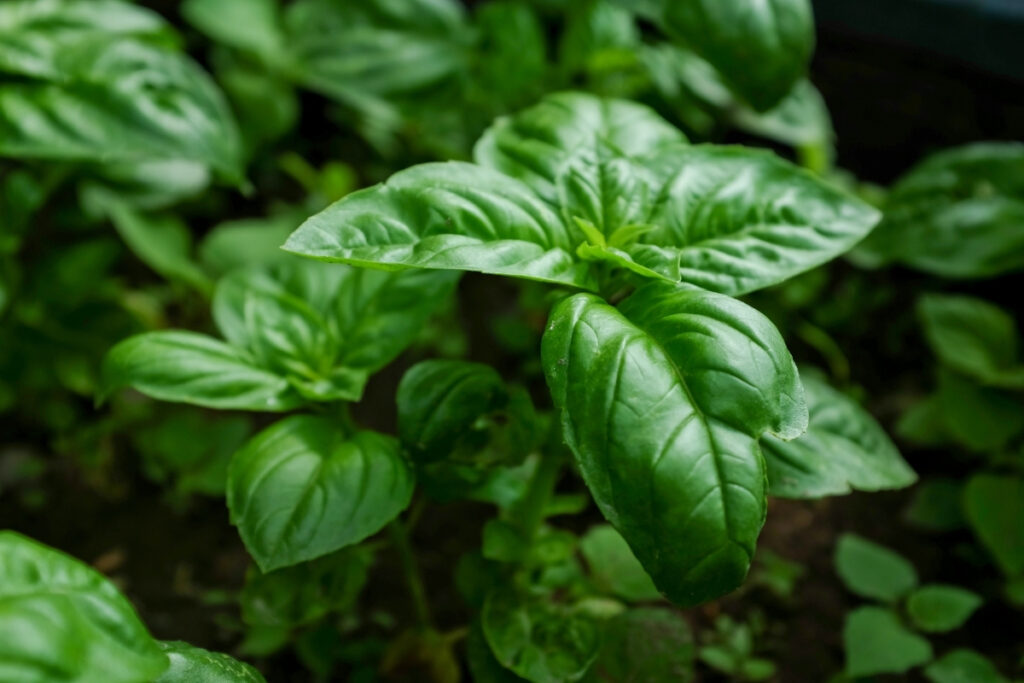
Along with it, some other health benefits can be accrued from oils present in basil leaves. It includes:
- Good for Digestion
Essential oils present in basil are helpful for different stomach problems like digestion. It helps to calm an upset stomach and reduce bloating. It might also help to stimulate appetite and feed healthy bacteria in the gut to promote good digestion and strong immunity.
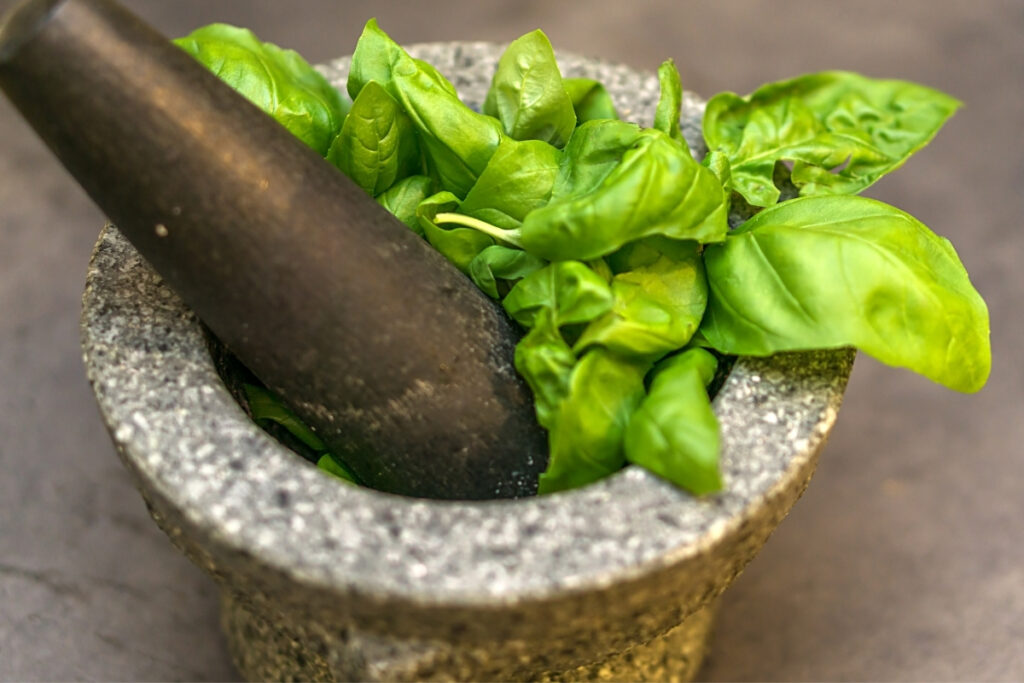
- Anti-inflammatory properties
Basil has strong anti-inflammatory properties that help fight many problems like heart disease by lowering cholesterol levels, arthritis, bowel condition, rheumatoid, etc., by fighting free radicals that can damage cells. Along with the above problems, Holy Basil helps soothe cold, cough, fever, flu, and headache.
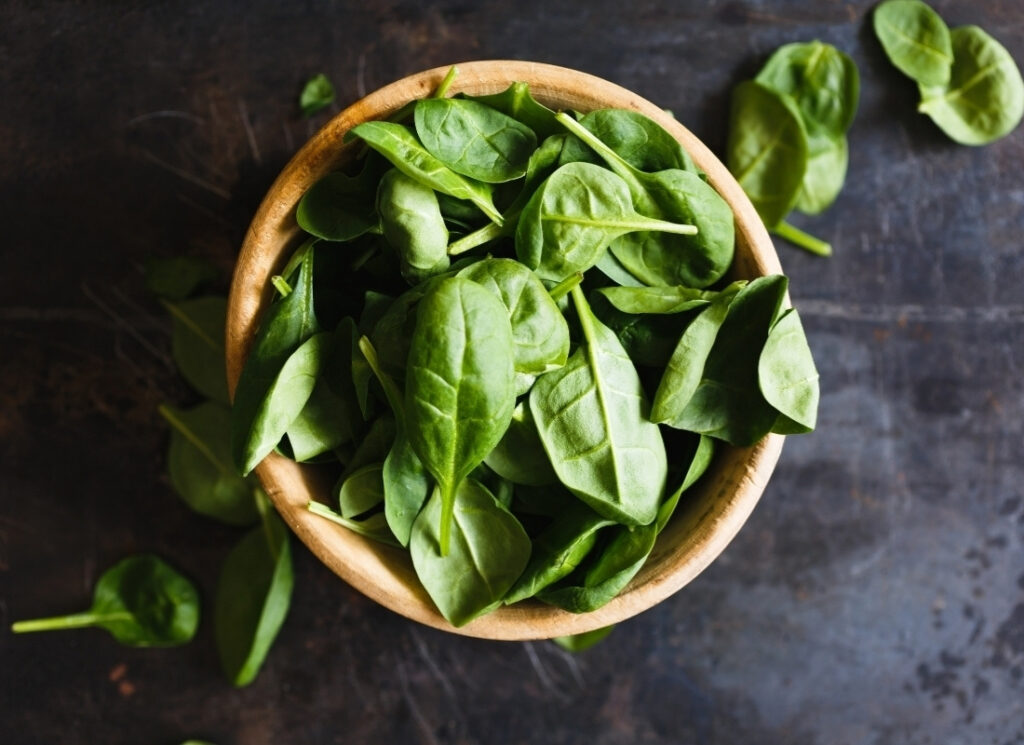
- Cancer Prevention
Phytochemicals present in Holy Basil may help protect against various cancers like lung cancer, liver cancer, oral cancer, skin cancer, etc., by fighting toxic chemicals and hindering the growth of cancerous cells in the body. However, one cannot be 100% dependent on tulsi for cancer prevention or substitute it with chemotherapy.
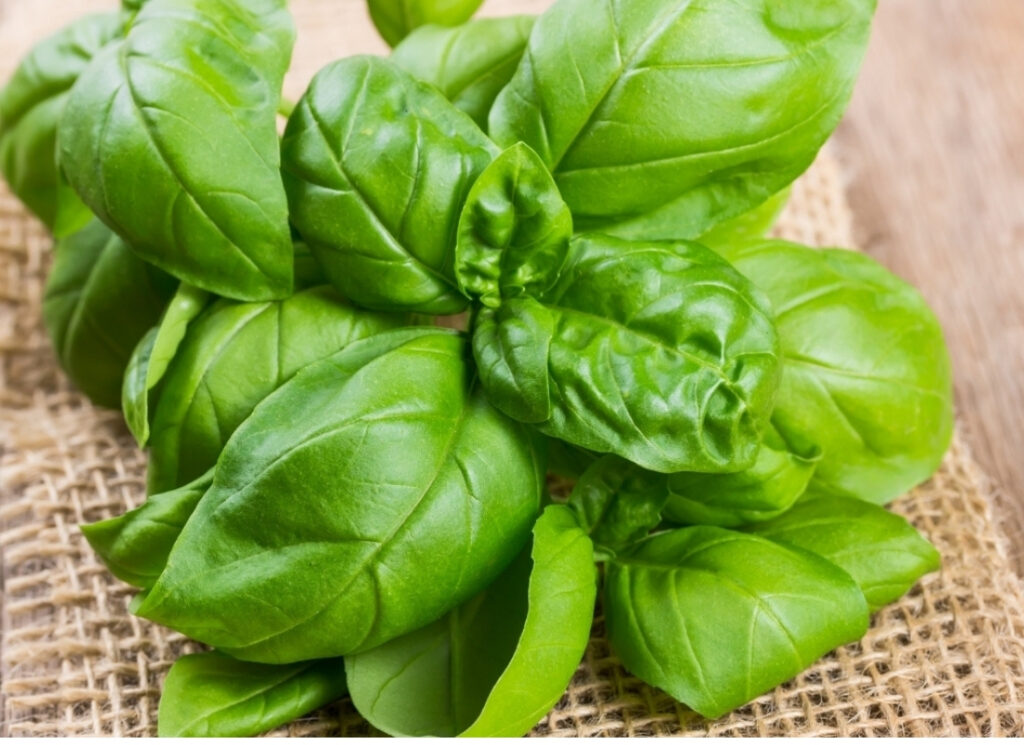
- Reduce Oxidative Stress
Oxidative stress is the disturbance between free radical cells and antioxidative defenses, resulting in tissue damage. Eugenol and Limonene oil present in Basil helps balance the production of antioxidant defenses in the body and eliminating free radicals to prevent further damage.

- Keeps blood sugar in control
A diabetic patient needs to keep blood sugar in control by lowering triglyceride and cholesterol levels. Basil has a low glycemic level, which slows sugar release in the blood; hence, reducing high blood sugar levels.
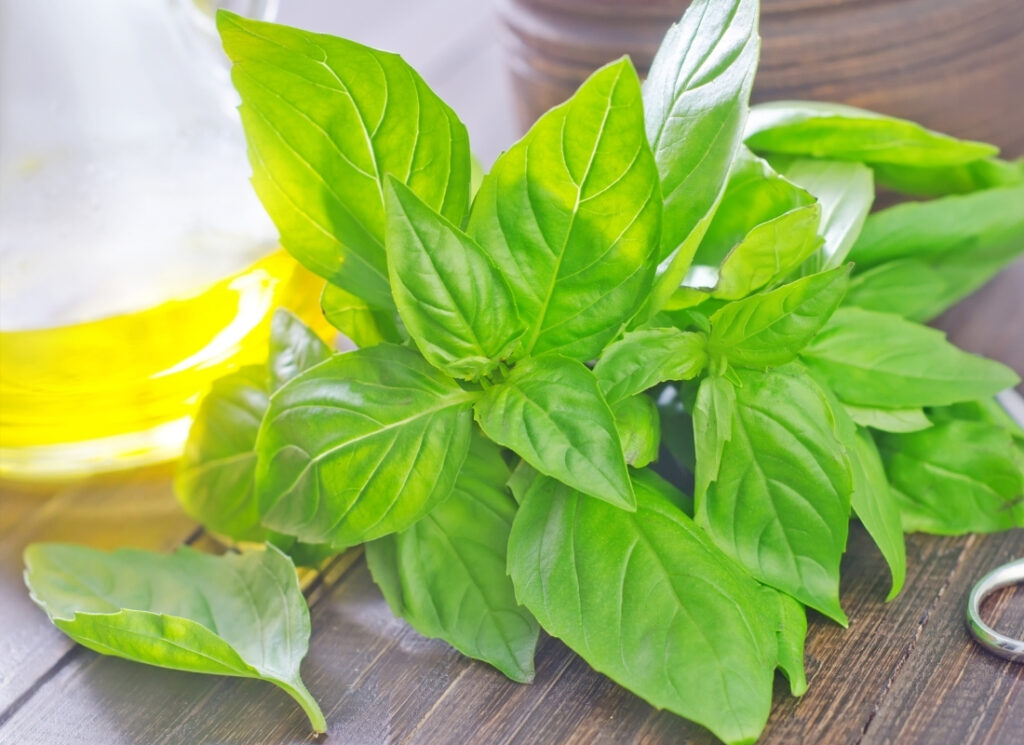
- Fights Depression
Basil is believed to lower anxiety and tension by stimulating neural hormones responsible for happiness and energy. It acts as a stress buster and will help improve mental health, concentration power and reduce age-related memory loss.
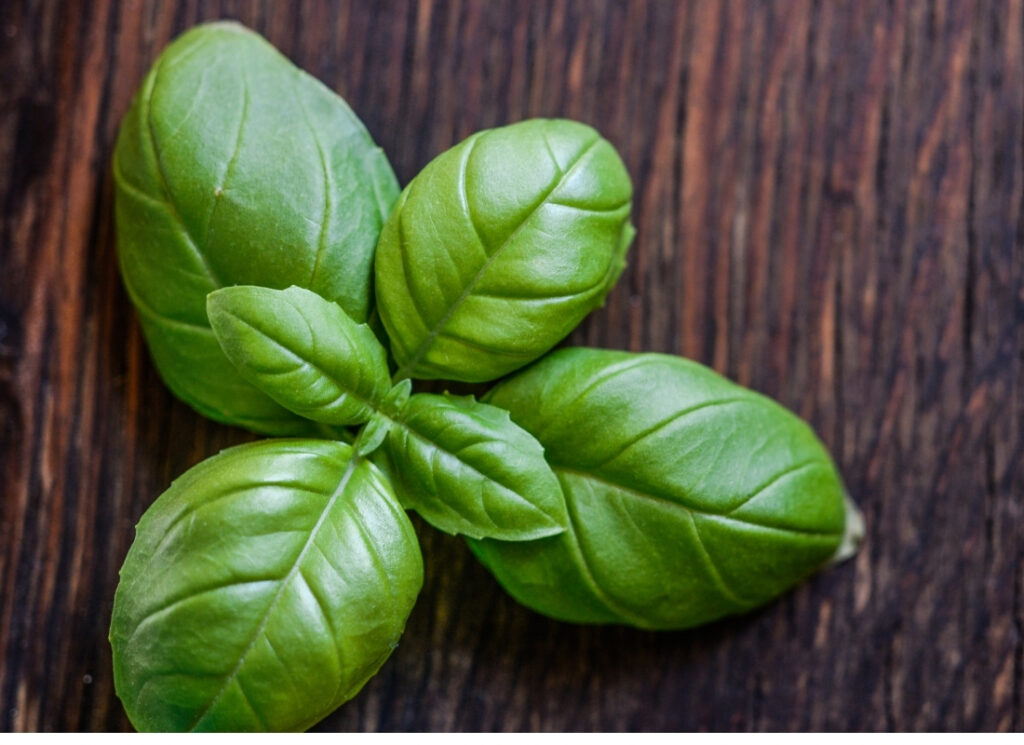
- Has anti-bacterial properties
Bacterial strains like Listeria, staphylococcus, salmonella, etc., have been spreading widely. Essential oils present in basil leaves have anti-bacterial properties that can protect from the stated range of bacteria, and urinal, respiratory & skin infections also.
It is a diverse herb, which compliments other spices and herbs like pepper, garlic, mustard, parsley, rosemary, thyme, etc., and can be used both fresh and dried to zest the flavor of soups, sauces, and more.
Although basil consumption is safe, it is better to have a limited intake as it is high in vitamin K, which helps blood clots.
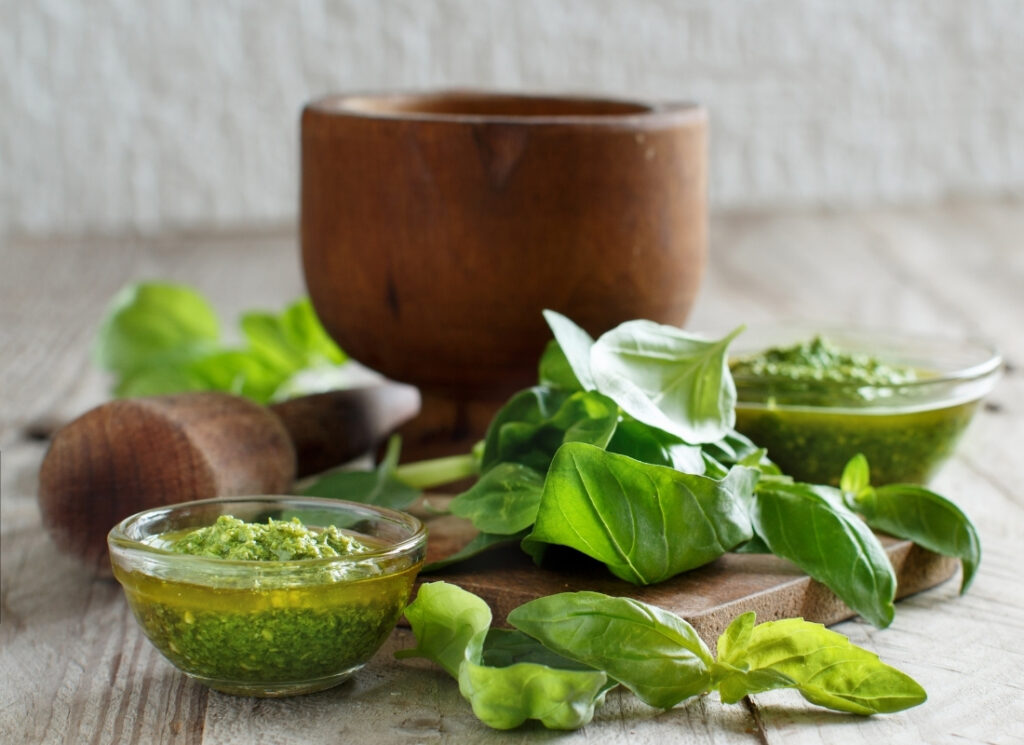
The Bottom Line
There are varied benefits of basil leaves. From a healthy gut, good digestion to fighting depression, basil can be a beneficial addition to your diet. And along with improved health, your taste buds will be thanking you for zesting up the food.
Hence, add basil to your diet and enjoy good health and food.















